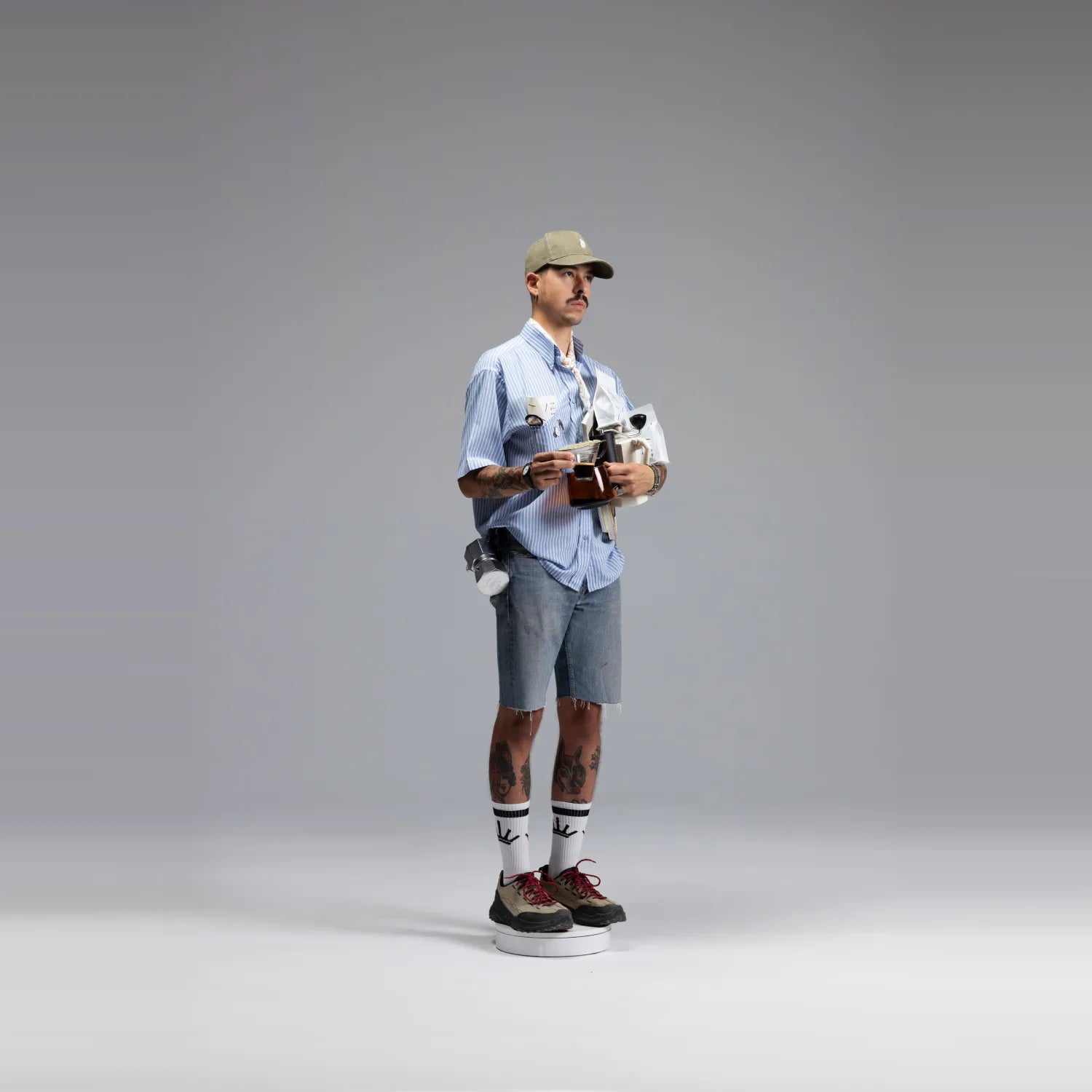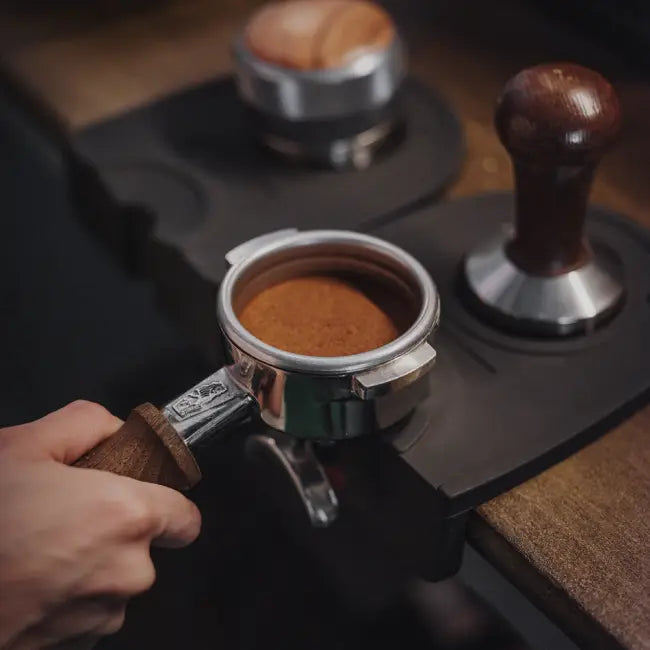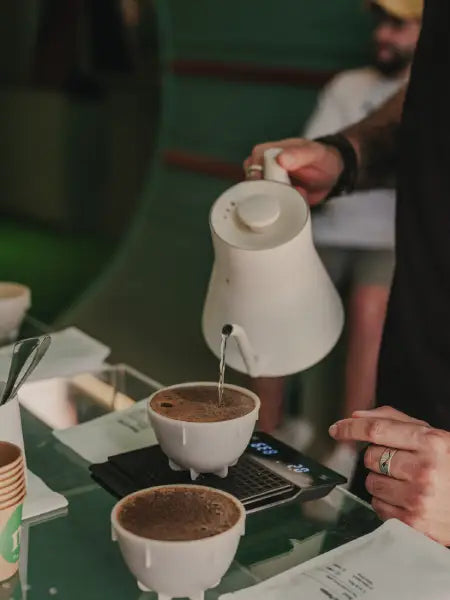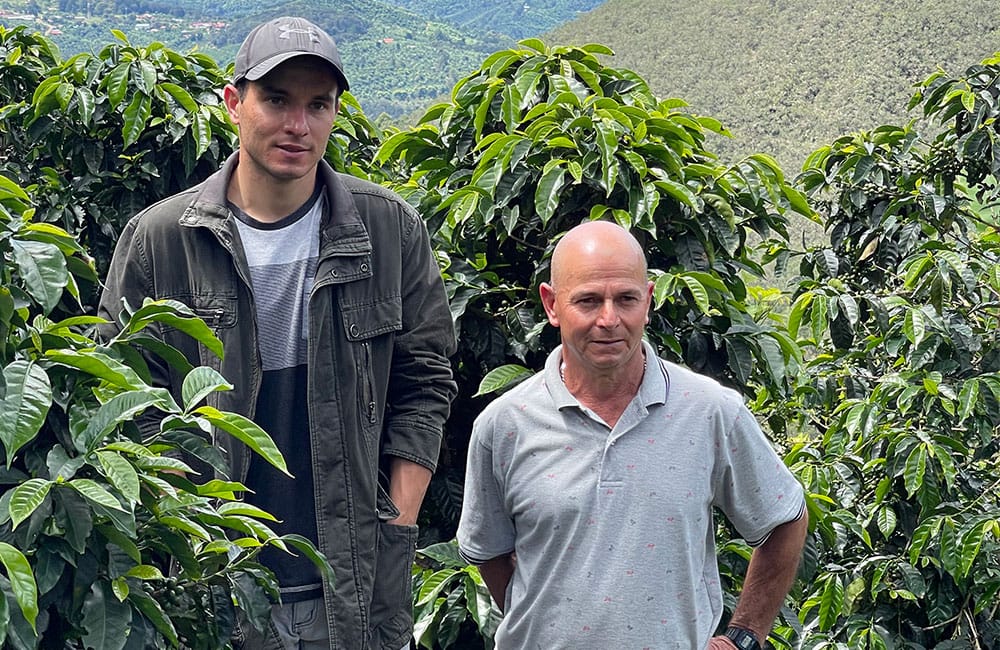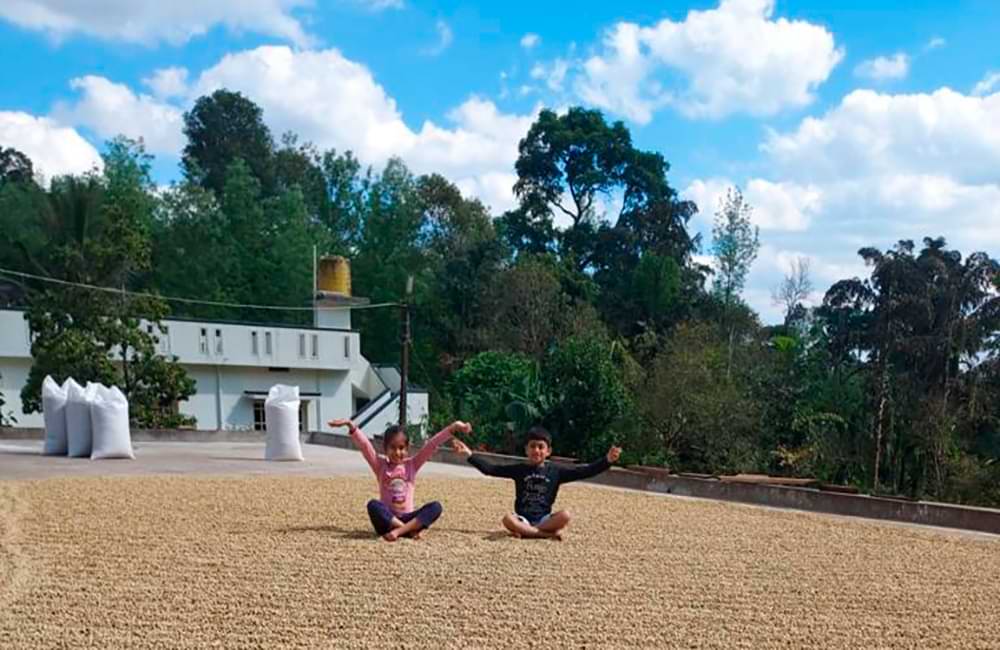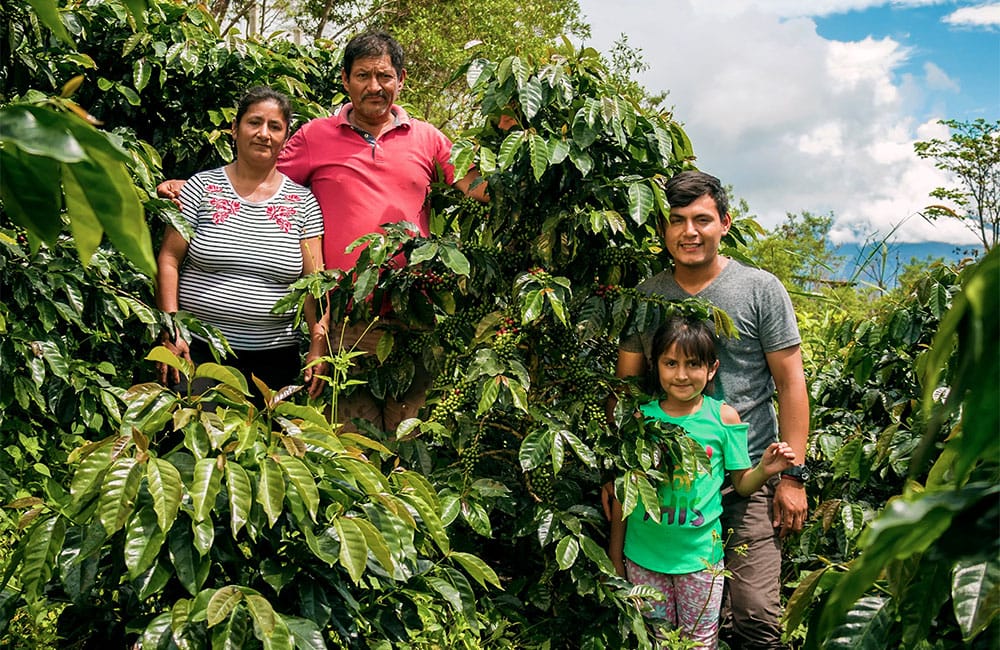Plátano, uva, chocolate blanco
| Tarrazú | |
| 1.900 msnm. | |
| Red Catuaí | |
| Natural | |
| Romario Umaña |

Un café natural dulce y tropical de Romario Umaña en Tarrazú
Romario Umaña fundó su propia estación de lavado para procesar el café de su finca en 2019, bajo el nombre de Umacor.Umacor es una conjunción del nombre de su madre y padre (Umaña + Cordero).
La finca de Romario y la estación de lavado se encuentran en la localidad de San Marco de Tarrazú, perteneciente al distrito homónimo de Costa Rica.




De café comercial a café de especialidad
 El abuelo de Romario se dedicaba al cultivo y procesado de café y su padre trabajó muchos años en diferentes plantaciones hasta que reunió el dinero suficiente para comprar su propia micro-plantación.
El abuelo de Romario se dedicaba al cultivo y procesado de café y su padre trabajó muchos años en diferentes plantaciones hasta que reunió el dinero suficiente para comprar su propia micro-plantación.Romario creció ayudando a su padre y abuelo cuando no estaba estudiando o practicando ciclismo por la región montañosa de Tarrazú.
Durante todo este tiempo la familia llevaba su café a cooperativas locales para que lo procesaran o lo vendían a las estaciones de lavado de multinacionales, donde se mezclaba con otros cafés convencionales.
 En Costa Rica las familias están muy unidas y los primos de Romario empezaron su propia micro planta de lavado.
En Costa Rica las familias están muy unidas y los primos de Romario empezaron su propia micro planta de lavado.Romario y sus hermanos pasaron mucho tiempo aprendiendo de forma práctica todo el proceso del café.
En 2019 Romario desarrolló un plan para establecer su propia micro planta de lavado y lo presentó a su familia.
Romario explicó a su familia que con todo el conocimiento acumulado sobre el cultivo del café y teniendo su propia planta de lavado podrían obtener un café de mejor calidad y por el que podrían obtener un mejor precio.
 Tener control del café, desde la semilla hasta el saco para vender, permite un control de calidad y trazabilidad que asegura la calidad de este.
Tener control del café, desde la semilla hasta el saco para vender, permite un control de calidad y trazabilidad que asegura la calidad de este.Esencialmente, pasaron de cultivar un buen café que se perdía en grandes a lotes, a cultivar un café de especialidad que ellos mismos plantaban, recogían, procesaban y vendían. El resultado es un café excepcional.
El principio de Umacor

Umacor comenzó de forma muy simple. La región de Tarrazu se ha convertido un hub de micro plantaciones y estaciones de lavado que han creado un ecosistema de café de especialidad con excelentes resultados.
Cuenta con un sistema de lavado y procesado sencillo pero efectivo. Tienen varios sifones donde el café es depositado una vez recogido, varios tanques de lavado y camas para el secado.
En este momento, todo el proceso se hace de forma manual, dado que la instalación de sistemas mecánicos necesita electricidad, algo de difícil acceso en esta región y es más caro.
Romario y su familia tienen intención de mejorar y mecanizar algunas partes del proceso, pero el hecho de que de momento se haga todo de forma manual no resta calidad al café, al contrario.
Esto es posible porque por su primera producción propia fue en 2020 y relativamente pequeña, 10 sacos. Lo que ha incrementado hasta 20 para esta cosecha de 2022.
Tipo de procesado
 Una vez que se recolecta el café, se deja caer en el sifón receptor y se envía a un sistema flotante simple que construyeron para eliminar la fruta ligera y poco madura y otros elementos extraños.
Una vez que se recolecta el café, se deja caer en el sifón receptor y se envía a un sistema flotante simple que construyeron para eliminar la fruta ligera y poco madura y otros elementos extraños.Luego, las cerezas se colocan en lechos de secado elevados en una capa delgada.
Se aseguran de mover y voltear la fruta con frecuencia en un proceso de secado que por lo general dura unos 22 días hasta alcanzar el nivel de humedad óptimo, lo que conduce a un café procesado natural, muy limpio.
El café resultante es muy afrutado, pero por las cualidades naturales de la planta y el terreno, puesto que no sufre casi fermentación.

Tarrazú, un lugar único para el cultivo del café
 Todos los cafés provenientes de esta región, en la base de la montaña La Cruz, tienen una calidad excepcional años tras años, debido al microclima de esta región, la calidad del terreno y el saber hacer de los caficultores.
Todos los cafés provenientes de esta región, en la base de la montaña La Cruz, tienen una calidad excepcional años tras años, debido al microclima de esta región, la calidad del terreno y el saber hacer de los caficultores.
